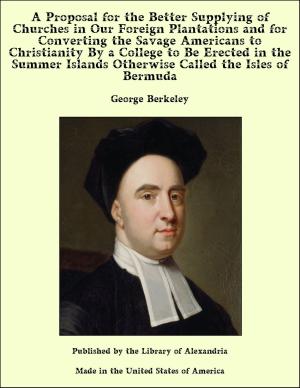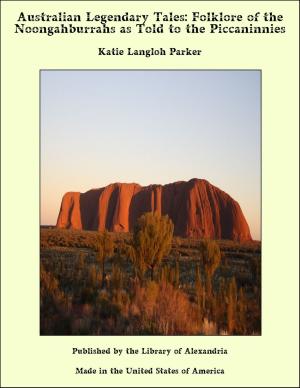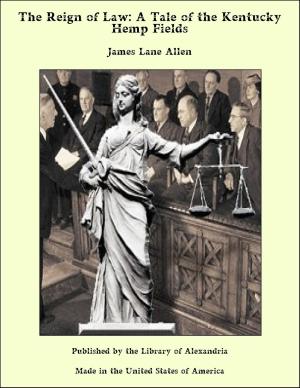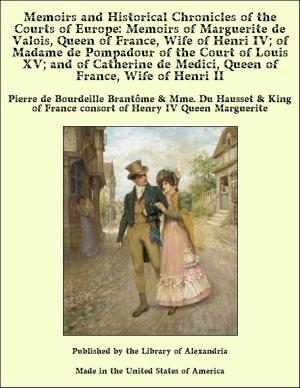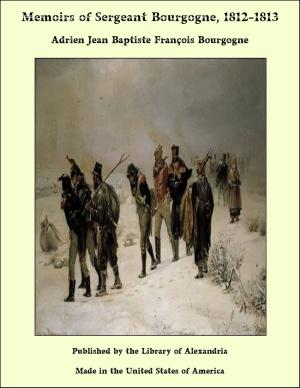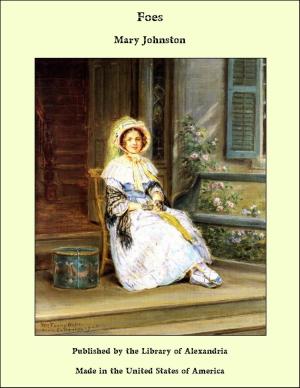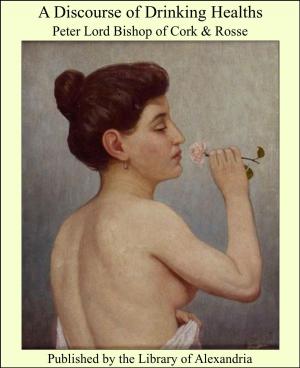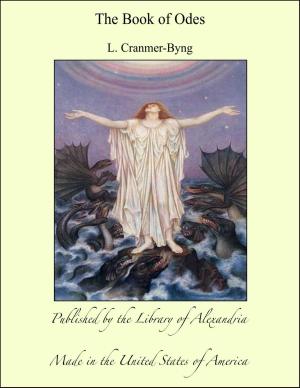Merry-Garden and Other Stories
Nonfiction, Religion & Spirituality, New Age, History, Fiction & Literature| Author: | Sir Arthur Thomas Quiller-Couch | ISBN: | 9781465594105 |
| Publisher: | Library of Alexandria | Publication: | March 8, 2015 |
| Imprint: | Language: | English |
| Author: | Sir Arthur Thomas Quiller-Couch |
| ISBN: | 9781465594105 |
| Publisher: | Library of Alexandria |
| Publication: | March 8, 2015 |
| Imprint: | |
| Language: | English |
Aunt Barbree Furnace was a widow woman, and held Merry-Garden upon a tenancy of a kind you don't often come across nowadays—and good riddance to it!—though common enough when I was a boy. The whole lease was but for three pounds a year for the term of three lives—her husband, William John Furnace; her husband's younger sister Tryphena, that had married a man called Jewell and buried him within six months; and Tryphena's only child Ferdinando, otherwise known as Nandy. When the lease was drawn, all three lives seemed good enough for another fifty years. The Furnaces came of a long-lived stock, and William John with any ordinary care might hope to reach eighty. His sister had been specially put into the lease on the strength of her constitution; and six months of married life had given her a distaste for it, which made things all the safer. As for Nandy, there's always a risk, of course, with very young lives, 'specially with boys: but if he did happen to pull through, 'twas like as not he might lengthen out the lease for another thirty years. At any rate Mr. and Mrs. Furnace took the risk with a cheerful mind. The woman came from Saltash, where she and her mother had driven a thriving trade in cockles and other shellfish, particularly with the Royal Marines; and being a busy spirit and childless, she hit on the notion of turning her old trade to account. Her husband, William John, had tilled Merry-Garden and stocked it with fruits and sallets with no eye but to the sale of them in Saltash market. But the house was handy for pleasure-takers by water, and by and by the board she put up— Mrs. Barbree Furnace. Cockles and Cream in Season. Water Boiled and Tea if You Wish—attracted the picnickers by scores; and the picnickers began to ask for fruit with their teas, till William John, at his wife's advice, planted half an acre of strawberries, and laid out another half-acre in currant and raspberry bushes. By this time, too, the cherry-trees were beginning to yield. So by little and little, feeling sure of their lease, they extended the business. William John, one winter, put up a brand-new chimney, and bought three cows which he pastured up along in the meadow behind the woods; and next spring the pair hung out a fresh board and painted on it—Furnace's Merry-Garden Tea-House. Patronised by the Naval and Military. Teas, with Fruit and Cream, Sixpence per head: and another board which they hoisted in the mazzard-season, saying—Sixpence at the Gate, and eat so Much as you Mind to. All are Welcome. With all this, Aunt Barbree (as she came to be called) didn't neglect the cockles, which were her native trade. In busy times she could afford to hire over one of the Saltash fish-women—the Johnses or the Glanvilles; you'll have heard of them, maybe?—to lend her a hand: but in anything like a slack season she'd be down at low water, with her petticoat trussed over her knees, raking cockles with her own hands. Yes, yes, a powerful, a remarkable woman! and a pity it was (I've heard my mother say) to see such a healthy, strong couple prospering in all they touched, and hauling in money hand-over-fist, with neither chick nor child to leave it to.
Aunt Barbree Furnace was a widow woman, and held Merry-Garden upon a tenancy of a kind you don't often come across nowadays—and good riddance to it!—though common enough when I was a boy. The whole lease was but for three pounds a year for the term of three lives—her husband, William John Furnace; her husband's younger sister Tryphena, that had married a man called Jewell and buried him within six months; and Tryphena's only child Ferdinando, otherwise known as Nandy. When the lease was drawn, all three lives seemed good enough for another fifty years. The Furnaces came of a long-lived stock, and William John with any ordinary care might hope to reach eighty. His sister had been specially put into the lease on the strength of her constitution; and six months of married life had given her a distaste for it, which made things all the safer. As for Nandy, there's always a risk, of course, with very young lives, 'specially with boys: but if he did happen to pull through, 'twas like as not he might lengthen out the lease for another thirty years. At any rate Mr. and Mrs. Furnace took the risk with a cheerful mind. The woman came from Saltash, where she and her mother had driven a thriving trade in cockles and other shellfish, particularly with the Royal Marines; and being a busy spirit and childless, she hit on the notion of turning her old trade to account. Her husband, William John, had tilled Merry-Garden and stocked it with fruits and sallets with no eye but to the sale of them in Saltash market. But the house was handy for pleasure-takers by water, and by and by the board she put up— Mrs. Barbree Furnace. Cockles and Cream in Season. Water Boiled and Tea if You Wish—attracted the picnickers by scores; and the picnickers began to ask for fruit with their teas, till William John, at his wife's advice, planted half an acre of strawberries, and laid out another half-acre in currant and raspberry bushes. By this time, too, the cherry-trees were beginning to yield. So by little and little, feeling sure of their lease, they extended the business. William John, one winter, put up a brand-new chimney, and bought three cows which he pastured up along in the meadow behind the woods; and next spring the pair hung out a fresh board and painted on it—Furnace's Merry-Garden Tea-House. Patronised by the Naval and Military. Teas, with Fruit and Cream, Sixpence per head: and another board which they hoisted in the mazzard-season, saying—Sixpence at the Gate, and eat so Much as you Mind to. All are Welcome. With all this, Aunt Barbree (as she came to be called) didn't neglect the cockles, which were her native trade. In busy times she could afford to hire over one of the Saltash fish-women—the Johnses or the Glanvilles; you'll have heard of them, maybe?—to lend her a hand: but in anything like a slack season she'd be down at low water, with her petticoat trussed over her knees, raking cockles with her own hands. Yes, yes, a powerful, a remarkable woman! and a pity it was (I've heard my mother say) to see such a healthy, strong couple prospering in all they touched, and hauling in money hand-over-fist, with neither chick nor child to leave it to.

